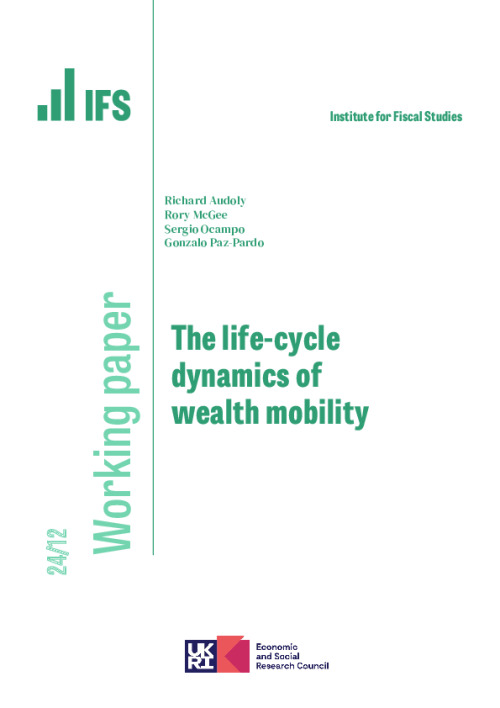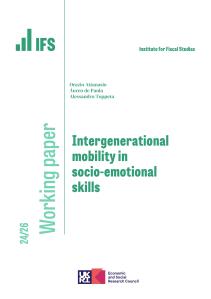Downloads

Download working paper here
PDF | 2.58 MB
We use 25 years of tax records for the Norwegian population to study the mobility of wealth over people’s lifetimes. We find considerable wealth mobility over the life cycle. To understand the underlying mobility patterns, we group individuals with similar wealth rank histories using agglomerative hierarchical clustering, a tool from statistical learning. The mobility patterns we elicit provide evidence of segmented mobility. Over 60 percent of the population remains at the top or bottom of the wealth distribution throughout their lives. Mobility is driven by the remaining 40 percent, who move only within the middle of the distribution. Movements are tied to differential income trajectories and business activities across groups. We show parental wealth is the key predictor of who is persistently rich or poor, while human capital is the main predictor of those who rise and fall through the middle of the distribution.
Authors

Research Associate New York Fed
Richard is a Research Associate and an Assistant Professor at the Norwegian School of Economics, focusing on labour, macro and search.

Research Associate University of Western Ontario
Rory is a Research Associate at the IFS and an Assistant Professor in the Department of Economics at the University of Western Ontario.

Assistant Professor Western University, London, Ontario

Gonzalo Paz-Pardo
Working Paper details
- DOI
- 10.1920/wp.ifs.2024.1224
- Publisher
- Institute for Fiscal Studies
Suggested citation
Audoly, R et al. (2024). The life-cycle dynamics of wealth mobility. 24/12. London: Institute for Fiscal Studies. Available at: https://ifs.org.uk/publications/life-cycle-dynamics-wealth-mobility (accessed: 30 June 2024).
More from IFS
Understand this issue

Why inheritance tax should be reformed
18 January 2024

How important is the Bank of Mum and Dad?
15 December 2023

Raising revenue from closing inheritance tax loopholes
18 April 2024
Policy analysis

Homeownership for young adults has recovered to its 2010 level
29 May 2024

Making mortgage guarantees permanent will help some first-time buyers, but only if they can afford a bigger mortgage
6 June 2024

Reforming the taxation of non-doms: policy options and uncertainties
4 March 2024
Academic research

The intergenerational elasticity of earnings: Exploring the mechanisms
3 June 2024

Intergenerational mobility in socio-emotional skills
5 June 2024

Police infrastructure, police performance, and crime: Evidence from austerity cuts
24 April 2024